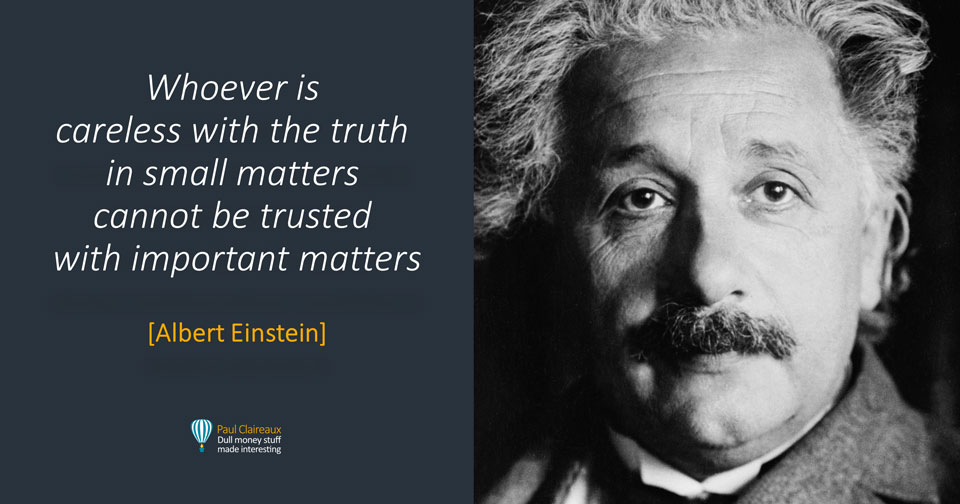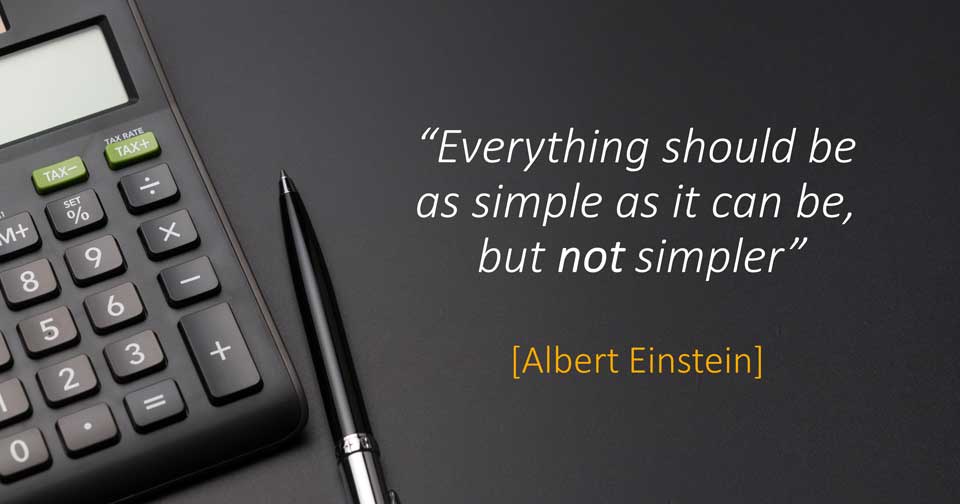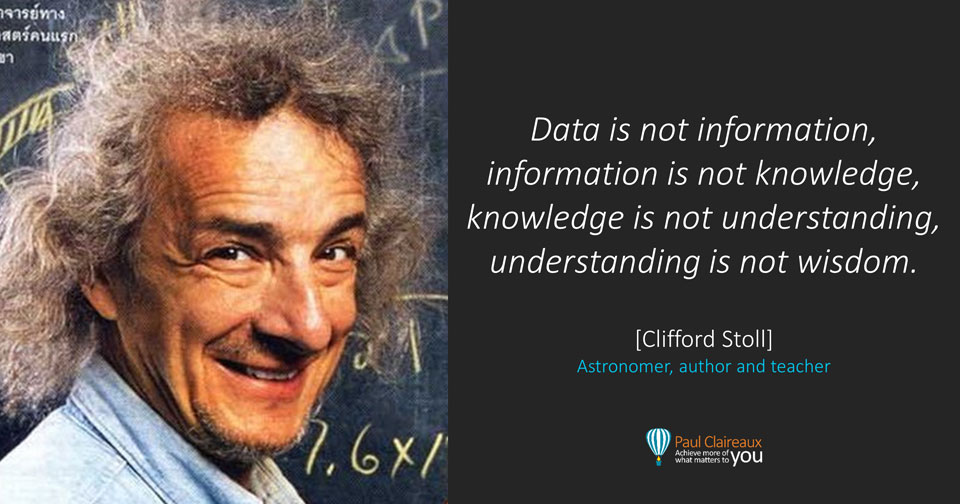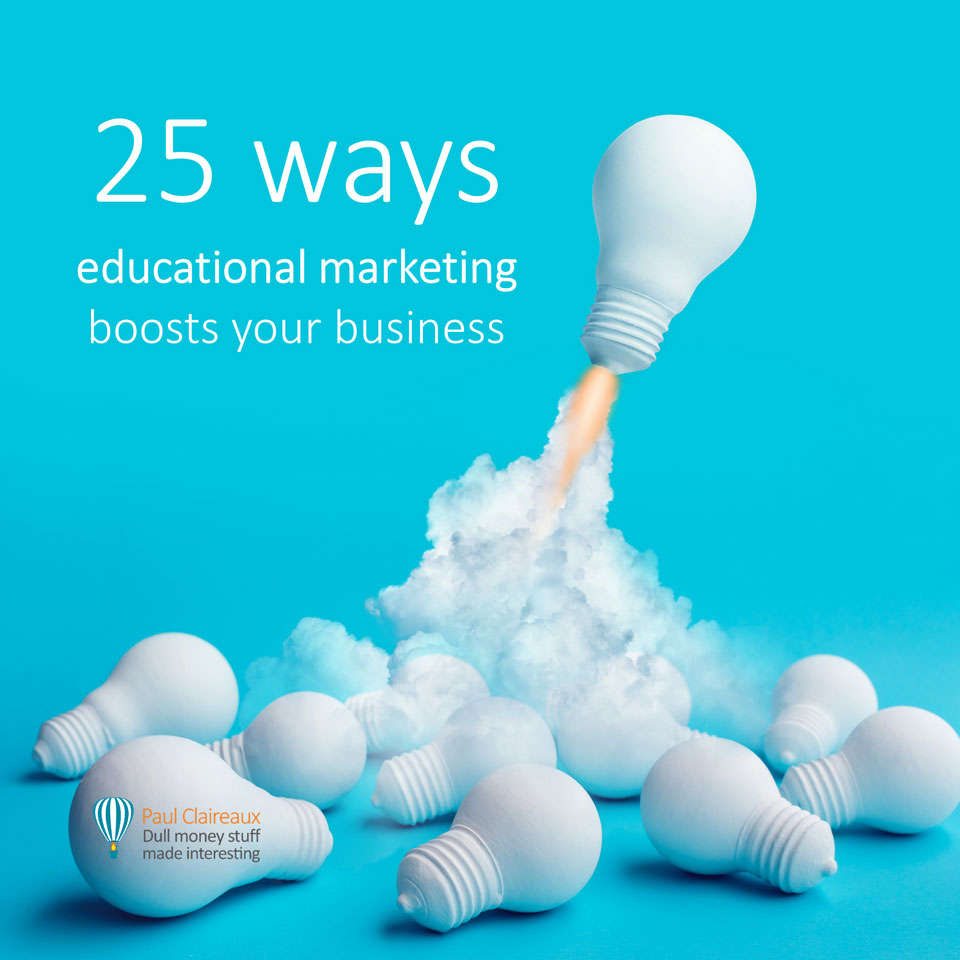Could a focus on financial education make you happier and more motivated for work?
And how could it make your clients and their families happier too?

A 10 to 20-minute read, depending on your speed.
This is the first of several Insights on the benefits of putting financial education at the heart of your business.
This series is for anyone leading (or influencing) a business offering financial planning, advice, coaching, products, or fund management.
If that’s you, you’re in the right place if you want your firm to become (or maintain its position as) a go-to place for helping consumers make better money decisions.
(That’s what I help businesses achieve)
What’s coming up?
Over several of these posts, I hope to help you explore the enormous range of benefits (to you personally, your clients, your introducers, and your bottom line) of an education-first approach to business.
In future insights, I’ll:
- Help you explore all the questions you need to answer upfront (to avoid wasting a ton of money) when planning to build a new educational library or enhance the one you have.
- Show you what it might cost – to create your own educational library – and how to cut those costs by between 30% and 90%.
So, you don’t need to worry about the cost of this type of marketing.
If you get it right, you’ll make an enormous return on your investment.
My clients who completed their programme have done so.
If you want to check out the cost question first, head over here.
And, if you’d like to know now about all *(25!) benefits of education-first marketing – to your business and your clients, e-mail me at hello@paulclaireaux.com
Just add the subject line ‘Send me the pack of 25 benefits’, and I’ll send you a colourful slide deck on that.
I don’t want to hold anything back.
In this and the next insight, however, I want to focus on what matters to you personally.
So, I’ll explore some fundamental questions about what makes us happy and motivated in our work – to see how a focus on education could help.
Do you know about all of these benefits already?
I don’t want to waste your time if you’re completely familiar with all the benefits (to yourself, your team, your clients and your profit!) of putting education at the heart of your business.
So, if you just want some help to start, expand or improve your educational offerings, click on one of these links for an outline of my:
Alternatively, if you’ve decided that ‘Lifetime Licensed Content’ is the quickest and best value way to engage your audiences (and it is!), visit our content shop (link to be added) to see what’s currently on offer.

You’ll find several vital explainers on key financial (and life planning) concepts in the shop now. And I’ll add more every month throughout 2024 and beyond.
Finally, if you’d rather talk than read all these posts, I’m happy to do that.
There are a great many ways to build a valuable content library. And a (no cost) conversation could help you explore your options.
If you’d like to talk, book directly into my diary here.
Otherwise, let’s get into these questions of happiness and motivation now.
Where can you go for reliable evidence?
Some say we entered an age of fake news or alternative facts in recent years and that we’re now in overdrive with AI-generated text, images, and video.
However, if you read Tom Phillips’s book, ‘Truth, a Brief History of Total BS, ‘ you’ll see that these games have been played for centuries.
Interestingly, Benjamin Franklin, a founding father of the USA, told some big lies in his popular magazine, ‘Poor Richard’s Almanac’ in an attempt to put his main competitor out of business!
And, in the financial advice sector, some like to talk about evidence-based investing – a topic we must leave for another day, except to say…
One’s view of academic evidence depends on which Nobel Prize Winner you follow. And, as you may know, the Economics Profession gave Nobel prizes to two economists with diametrically opposed views on stock market pricing in 2013.
So the evidence, about the efficiency of markets, is nuanced, to say the least.
Of course, the Financial Regulator has rules about unfair and misleading promotions, but that’s not stopped a lot of promotional content being produced (and still out there) which fails that basic test.
I can provide examples on request and help you fix your sales aid library if you need it.
And this job is well worth doing before the FCA issues public consumer warnings about the content that’s currently widely available on FS firm websites.
So, yes, we should demand that anyone presenting ideas is careful with the facts.
And this is especially true on sensitive issues about how our minds work and what might make us happier.
Sadly, this doesn’t always happen in any industry sector. And, too often, we are asked to spend our time (at a conference or in an online webinar) listening to self-appointed experts sharing homespun versions of Lizard or Split Brain ideas that were disproven by Scientists decades ago.
Let’s just remember.
Not everyone who stands on a stage is qualified to be our sage!
OK, I hear you.
What qualifies me to write on these topics?
Not much, but then I’m not putting myself forward as a guru, and that’s probably just as well given what most of them say!
I’m just sharing some ideas about happiness and motivation from academics like those listed below – the people with real evidence.
So, these people (and others you’ve probably not heard of) are the people to follow.
 I’ve done my best to offer accurate and balanced ideas here, but these are enormous topics, and I welcome your thoughts if you believe you can help me improve this insight.
I’ve done my best to offer accurate and balanced ideas here, but these are enormous topics, and I welcome your thoughts if you believe you can help me improve this insight.
New research continually reveals new ideas, and even established theories of behaviour and happiness from a Nobel Prize Winner like Daniel Kahneman can be found to be flawed when the research is repeated.
I don’t hold a Master’s degree in Psychology, Neuroscience, or related subjects. My background is in Engineering, Sales, Marketing, Product Development, and Aviation.
I flew aeroplanes as a hobby for 25 years, and you must pass a basic exam on human performance for that, though most of the learning comes from dealing with your own intense emotions.
Life-and-death situations tend to focus the mind.
I guess I also have a lot of what some call ‘lived experience’ around happiness and motivation questions.
I’m quite old!
I was 50 before I escaped a life of episodic depression by learning about ‘cognitive distortions’ in the book, ‘Feeling Great’ by Dr David Burns, which, according to independent research, helped about 60% of people who read it.
This is NOT to suggest that the book is a depression cure for everyone, however. Each person’s situation is unique, and if you struggle with depression or anxiety, seek appropriate professional help.
Anyway, that’s me. I draw on those books (and others and other robust resources) for insights into questions of human experience and performance.
So, if you’re happy with that, read on.
I hope these ideas help you cut through the widespread confusion about what drives us and what could boost our happiness.
My only advice is to read widely from the best sources to decide what really matters to you now and what might matter more in the future.
Could you be happier?
Most of us would like to be happier from time to time, but as Viktor Frankl explained long ago, happiness, like success, cannot be pursued directly – and trying is often counterproductive.
We need to dedicate ourselves to causes greater than our personal needs.
And that idea aligns perfectly with this advice from Booker T. Washington, don’t you think?
Remember, in this Insight, we’re exploring whether putting education at the heart of our business could boost our work motivation and happiness.
To answer this question, it may help to start with the basics.
If you have time, you could read Adam Smith’s book, The Wealth of Nations (published in 1776), which runs to 524 pages.
Smith’s work is regarded as the start of modern economic thinking. In it, he asserts that economies benefit as a whole because each of us pursues personal gains.
To be precise, what he said was:
“It is not from the benevolence of the butcher, the brewer, or the baker that we expect our dinner, but from their regard to their own interest.
We address ourselves, not to their humanity but to their self-love, and never talk to them of our necessities but of their advantages.”
Of course, this idea of intentional, rational, self-interested behaviour is reasonable in many contexts. But much of our activity is unintentional and habitual.
And our habits are not always rational!
Holding flawed beliefs is another enormous problem we face.
And we can get horribly lost, on any question, if our thoughts and subsequent actions (or inaction) are based on crazy ideas.
So, I’ll revisit the challenges we face with our ‘habits’ and ‘attitudes’ with some consumer-facing content you may find useful soon.
For now, I’d point to some concern among many leading economists that we’ve overcooked the irrational behaviour story.
If you’ve read about behavioural science, you’ll know there are many biases that can trip us up. And it’s tempting to conclude that people act irrationally most of the time.
However, it turns out that our motivations are rational more often than some would have us believe.
As Steven Levitt (economist and author of Freakonomics) observed, our motivations are not always obvious to others.
Indeed, how could they be obvious if no visible external incentives (financial or otherwise) are at work?
Many of our motivations are invisible – they come from within.
And, while our attitudes arise from our unique set of beliefs, we share a similar basic set of motives or desires – as outlined in this table I’ve drawn from Psychologist Steve Reiss’s research in The Multifaceted Nature of Intrinsic Motivation.
Of course, while each of us may be driven by any of these motives, we each wrestle with our unique mix of motives at any given time.
What fascinates me is how a focus on educational work can help us meet most of those basic desires.
Look at the list in the table and check for yourself.
Which of those desires could be partly or completely met by focusing more effort on educational work?
Could we simplify this?
Possibly, but like most questions of human behaviour, the experts (Psychologists, Social Scientists, Psychiatrists, Psychoanalysts, Psychotherapists, Neuroscientists, and more) don’t always completely agree about what motivates us or what makes us happier.
For example, you can find an overview of motivational theories here and a list of 20 specific ideas here, and I’m sure my academic friends could point to many more theories.
The challenge for ‘non-experts’ like us (and perhaps for the experts, too!) is to know which theories are of practical use – and still valid!
A number of ideas in Psychology (like the theory that happiness does not increase with income beyond a certain point) have recently been found to be flawed.
Of course, many theories evolve as new research is done, but Psychology has a bigger replication crisis than most sciences.
That’s understandable to some extent because determining the primary causes of certain human behaviours is far more difficult than measuring the reactions of inanimate objects to forces applied, for example.
Force = Mass times Accleration.
That wonderful Newtonian law of Physics helped us put men on the moon and design all manner of labour-saving mechanical devices.
However, applying force to move an individual person gives very different and highly variable results – depending on the person and the context.
So, I get it, these Psychology questions are hard.
Are we missing a key point about motivation?
What concerns me about the fog of ideas around motivation is that we fail to give much attention to what is surely one of our biggest motivators: our desire to solve problems.
You could say it’s in Reiss’s list (under Power, Curiosity, or Order). Still, I think we seriously underestimate the motivational value of looking for problems to solve – and this is unhelpful for three reasons:
First, the evidence is in. Years of research by Psychologist Gabrielle Oettingen and her team proved the enormous value we gain by looking for obstacles to our goals upfront.
In short, whatever (personally solvable) challenge we face (e.g., achieving more at work or at home, losing weight, passing exams, etc.), it’s proven that if we look for possible obstacles and plan to deal with them, we enjoy better outcomes.
Second, a vast ‘self-help’ industry (of Coaches and Gurus charging fortunes for their seminars) preys on vulnerable people with the utterly misguided idea that ignoring your problems and your fears is the secret to success in life.
In various forms, their promise is that you only have to focus your desires on your ideal life – and the Universe will bring it to you.
And there is surely no more unpleasant example of someone preying on vulnerable people – than what Esther Hicks does here – in saying this man needs to focus harder in order to win the lottery!
The third problem is that if people don’t believe they need to face and deal with their challenges, they’re not going to want to learn how to do so, are they?
So, I think the Psychology profession should do more to fight this ‘wave of woo-woo’ misinformation in our so-called developed world because it undermines the ability of millions to thrive.
Some Psychologists, like Gabrielle Oettingen and Susan David, are doing great work to battle this problem.
However, I reckon we can all do more to flatten these fake ideas – for the good of society, don’t you?
Unsurprisingly, our natural human desire to solve problems is well understood by content creators and advertisers on Social Media.
They know very well how we’ll react when a puzzle like this appears in our ‘feed’.
 Most people can’t resist being drawn into solving a problem like that.
Most people can’t resist being drawn into solving a problem like that.
Can you guess the answer?
(it’s not what most people give)
And if you’d prefer something more challenging, try this one.
Imagine a class of thirty children.
What is the chance that any two of them have the same birthday?
Do you know the process for solving this problem?
Very few people do, so don’t worry if you’re struggling – everyone finds it hard unless they’re a ‘whizz’ at probability calculations.
And very few experts can work that out in their heads.
If you want the answers (which will surprise you) and the workings, e-mail me at hello@paulclaireaux.com with the subject title ‘Body Builder and Same Birthday Riddles’!
If we ignore people’s desire to solve problems, our education fails.
By failing to recognise people’s fundamental desire to solve their problems, we fail to design great educational content.
Let’s think about this.
Financial Planning and pension planning are somewhat complicated processes, right?
So, like the same birthday riddle above, few people know how to approach their longer-term financial planning challenges.
Nor do they know which tools to rely on to find sensible answers to basic questions.
Hell, most people don’t even have a clue what financial planning means.
Here’s the evidence!
There’s no question about this.
We’re failing to engage people in the value of financial planning, advice, and coaching services.
We need to show people how to answer questions if we’re to engage them in the (let’s face it!) normally dull issues around money.
I’ll return to this question of ‘equipping and empowering’ our audiences in a moment. And yes, I’ll return to Oettingen’s wonderful model (which turns positive thinking upside down) with some consumer-facing content soon.
First, let’s explore more ideas about motivation and happiness.
 As I’ve said, this is an enormous subject, and I only have space in this Insight to pick out a few ideas to help with our motivation.
As I’ve said, this is an enormous subject, and I only have space in this Insight to pick out a few ideas to help with our motivation.
So, here goes:
Eric Fromm: ‘To Have or To Be’
Psychoanalyst Eric Fromm offered a theory of Five Fundamental Human Needs (Relatedness, Transcendence, Rootedness, Identity and Freedom), which we could map onto Reiss’s list above. More on Fromm here.
More interestingly, in a financial planning context, in his 1976 book, ‘ To Have or To Be’ Fromm made a binary distinction between our ‘having’ and ‘being’ desires.
He points to modern society’s mistake of putting too much emphasis on ‘having’ material goods. And talks of the hopes for unlimited happiness, freedom, and material abundance (and domination of nature) that peaked at the start of the industrial age.
Fromm may have been right in describing the masses’ new hopes during the Industrial Revolution, but they had no hope of such things up until that time.
However, if we think about the Egyptian Pharaohs (who accumulated wealth and had themselves buried with it in costly complex underground tunnels to deter thieves from putting that wealth to better use!) it seems that the human desire to hoard material wealth goes back a very long way.
Fromm’s idea of dividing our wants between ‘having’ and ‘being’ is powerful.
I’d add ‘doing’ as a third desire if we want a short list of drives.
After all, many of our modern-day wants are around experiences (holidays and events, etc.), and these experiences don’t necessarily change who we are or leave us with material wealth.
Doing nice things or going to nice places (esp. with loved ones) may give us fond memories which may hold some value over time.
This reminds me of a question I developed some time ago for advisers, planners, or coaches to use in their first client meetings.
The question is designed to engage clients in the financial life planning process, and I see it as a more realistic and positive (non-catastrophic!) alternative to Kinder’s four questions.
The question is simply this:
What would you like to have, become or do, for yourself or your loved ones, in the future.
Try it out and see how you get on.
Just be sure to ask permission to ask this personal question and to wait for and pursue meaningful answers.
Paul Dolan: Happiness from deciding, designing and doing.
 Another neat, four-part process for finding more happiness comes from Paul Dolan (Professor of Behavioural Science at the London School of Economics) in his book, ‘Happiness by Design’.
Another neat, four-part process for finding more happiness comes from Paul Dolan (Professor of Behavioural Science at the London School of Economics) in his book, ‘Happiness by Design’.
Paul suggests we can be happier by engaging in more Deciding, Designing and Doing.
‘Deciding’ can certainly remove the stress that comes with uncertainty when we have many options, and we think it’s a good idea to keep all of those options open.
It’s not because we can’t effectively focus on multiple projects. When we thinly spread our efforts, we tend to perform poorly at everything.
Of course, when it comes to our longer-term finances, it helps to explore the possible designs before we decide on our future life plans.
And, as you know better than most, sound financial planning is precisely about helping your clients do that.
The Intrinsic vs Extrinsic motivators idea
Some Psychologists divide our motivations into two categories (extrinsic and intrinsic), as shown here from very well mind.
This binary model of motivators has some influential supporters in the Financial Services world, too.
Still, Psychologist Steven Reiss says there’s no evidence of any useful distinction between Intrinsic and Extrinsic motivations. And you’ll note that all 16 of his motives (in the colourful table shown earlier) have desirable, intrinsic, feelings listed alongside.
It’s just another example where Psychologists can’t agree on a model.
Either way, my concern about the Intrinsic vs. Extrinsic categorisation of motivators is where it’s used (which it sometimes is) to imply that extrinsic goals are less worthy than intrinsic goals.
That’s not helpful, and it’s not for us to judge what others should choose as their goals.
Our motives vary over time, and it’s sensible to pursue material wealth (if only an emergency fund) when we have little of it!
We must put on our Oxygen masks before trying to help others, right?
The point to recognise here is that we’re all challenged to find new (or maintain existing) sources of purpose throughout life.
Sure, those with more than enough wealth may choose to focus on non-material goals in later life, but not everyone will.
For those who choose to work beyond the normal retirement age, there are many potential health benefits – like reduced anxiety about money and continued mental agility.
Richard Branson is 73, and Warren Buffet is 93 years of age, and they’re both still working, for now.
What do the experts agree on about motivation and happiness?
 At a high level, as far as I can tell, I think most of the ‘mind experts’ agree that our drives are:
At a high level, as far as I can tell, I think most of the ‘mind experts’ agree that our drives are:
- Multifaceted.
- Vary in importance in different contexts.
- Vary over time!
So, our drives are personal to us, and their value is not for others to judge!
- Reiss’s list, in the table earlier, illustrates the multi-faceted nature of drives.
- Action for Happiness (the global charity founded by Professor Richard Layard with the Dalai Lama as Patron) offers a memorable list of physical and mental activities that may contribute to greater happiness.
Their list is easy to remember with their GREAT DREAM mnemonic here
Note the first letter, ‘G’, stands for Giving, and I’m wondering if there can be a better gift – than the gift of education?
The experts also seem to agree that:
- Most of us are sometimes motivated (tempted) by activities offering immediate gratification.
- Many of us are drawn to pursue goals we believe will make us happier in the long term – and those goals include:
- Building better Relationships.
- Finding more Autonomy (freedom) in what we can do or say.
- Mastering skills in areas that interest us or we feel would bring joy.
- Finding more Purposeful (and personally meaningful) work.
It’s easy to remember those motivators if you use:
- The RAMP acronym (Relationships, Autonomy, Mastery and Purpose)
- The four Cs mnemonic of Connection, Choice, Competence and Community.
What’s clear is that focusing on financial education in your business can help you score well on all four of those (RAMP) motivators.
By sharing a constant stream of educational ideas, you:
- Make more connections with people – both potential clients and others.
- Add another service to your business – which could offer more freedom for you in what you do in the future.
- Add a significantly more purposeful service than advice and product placement alone.
- Master the skills of content creation – or content presenting if you outsource the creative side of the work.
What really matters is empowerment.
The ‘Mastery’ motivator from the RAMP list is clearly related to our natural desire to solve problems.
And it points to the fact that great educational content must equip and empower consumers to make better decisions – about money or anything else.
Unfortunately, very little of what’s currently offered as financial education does so!
Too many firms in the financial services sector (for reasons only known to them!) spend vast sums on broadcasting a bunch of boring facts!
I’m completely baffled by how anyone could think that content full of boring facts could equip anyone with the wisdom to solve more of their life challenges. But that’s what’s produced day after day – and it must be costing millions!
The problem is clearly a lack of thinking in content design, and Clifford Stoll brilliantly exposes the widespread confusion among those tasked with creating educational content.
 Since the 1970s (from the work of Psychologist Albert Bandura on Self-Efficacy), we’ve known that people are more inclined to engage in activities in which they feel somewhat capable.
Since the 1970s (from the work of Psychologist Albert Bandura on Self-Efficacy), we’ve known that people are more inclined to engage in activities in which they feel somewhat capable.
Do we accept an invitation to play tennis if we’ve never hit a single ball?
With a little bit of thought, most of us can identify goals or aspects of our lives we want to improve. But we delay starting the work to convert those dreams into reality – because we believe the effort will be too much.
What Bandura and others found was that as we become more capable in tasks, we:
- Develop more interest in those activities and commit more strongly to them.
- Recover quickly from setbacks, and see problems as tasks to be mastered
When it comes to finding happiness in our work, it’s also worth exploring the concept of being ‘in the zone’ or ‘in the flow’, as studied extensively by Mihaly Csikszentmihalyi in the 1960s and 70s.
But I’m seriously over-stretching this post now, so we’ll return to ‘flow’ another time.
Bandura’s team also found that when we feel our capabilities are low, we tend to avoid challenging tasks, focus on our failings, and lose confidence in the skills we have.
So, it’s clearly essential for us to give people some sense of capability around money.
Without it, we’ll continue to see very few people actively engaging in financial planning.
Could bridging the knowledge gap boost your business?
 As I said at the top, this Insight is mainly concerned with what drives you and how a focus on education might contribute to a happier working life.
As I said at the top, this Insight is mainly concerned with what drives you and how a focus on education might contribute to a happier working life.
We’ll discuss the benefits to your clients and your business in future Insights, but here’s one final thought before we get into those details.
We both know that most adults seek financial guidance from family members and friends and this guidance may (or may not!) be helpful.
The value of financial guidance from family or friends (or some ‘random’ on TikTok!) depends on the personal experiences (or incentives) of the person giving it.
And past-performance-based guidance can be horribly misleading at the worst (and best) of times.
So, we know that any educational content must pass the ABC tests.
It must be Accurate, Balanced and Compelling if it’s to be read.
Some content out there passes one or two of those tests, but I guess we’d agree – very little passes all three!
The leading firms in Financial Services are catching on to this trend and starting to develop some really attractive content.
Like this series on human happiness, uniqueness, attitudes and more – that I wrote for Fidelity!
Contact me if you’d like to see guides on similar topics that you could white-label.
One question for you is whether you’re concerned that your clients (and prospects and professional connections) might start to see competitor’s websites as the place to go for ABC Insights on key money questions?
This is not rocket science – it’s stepping stones.
In a nutshell, educational marketing is about getting (and keeping) great ideas (and your business name) in the minds of your clients (and prospects).
Your educational content is the bridge that closes knowledge gaps between:
- You and your clients.
- You and your prospects.
- You and your professional connections.
More importantly, your educational content needs to close the perception gap between you and prospective clients – about the value of your financial planning/advice or coaching service.
We all know this gap exists in most consumers’ minds; there’s plenty of evidence of that. And as we saw earlier, next to no one is searching for financial planning as a service.
So, here’s another way to look at the value of great educational content.
Educational marketing is about providing stepping stones to your services.
You can’t expect people to see the green circle when they’re standing on the pink circle.
They need to step onto that blue circle to get an idea of what you do.
This means you must give enough information to engage your potential clients in the key issues.
This is not about proving how clever you are.
If you provide too much complex detail, you’ll overwhelm your readers.
Some planners do this, with so much detail on pensions, for example, that the reader (if they studied it) could pass the pension exams!
Sorry, but that’s not a good approach.
You need to offer enough valuable insights to help people understand where they might need your help.
It’s a *Goldilocks approach- and that’s the best way to deal with many of life’s challenges, right?
Want to offer more educational content?
I’m sure you’ll have more questions about the benefits and costs of putting education at the heart of your marketing, and I’ll cover more of those in the coming weeks.
In the meantime, I hope this Insight has piqued (or reinforced) your interest in developing a new (or renewing or extending an existing) educational program.
And if you’d like to explore this challenging area further with a chat, I’m happy to do that.
I’m sure we’d both gain from it.
Choose a date and time that works for you, and book into my diary here.
Coming up
In future Insights, we’ll dive deeper into the benefits of educational marketing.
We’ll explore how this type of content will help you to:
- Transition to more of an ideal work-life – if you feel you need to.
- Build (or maintain) trust with your current clients, their family members, your prospects and professional introducers.
- Reduce the time it takes to convert prospects to clients.
- Reduce the time it takes to complete the initial advice process.
- Enhance the consistency of messages given to clients.
- And a whole lot more.
And yes, in the next piece, I’ll discuss the costs of creating a good educational library on your own.
You can sign up for my ‘Educators Newsletter’ for more of these Insights.
You can also e-mail me at hello@paulclaireaux.com with the subject title ‘Send me the 25 benefits pack’ for an outline of those benefits today.
Thanks for dropping in
Paul
For more ideas to achieve more in your life and make more of your money, sign up for my newsletter here.
 You can comment as a guest (tick that box) or log in with your social media or DISQUS account, below.
You can comment as a guest (tick that box) or log in with your social media or DISQUS account, below.













Discuss this article